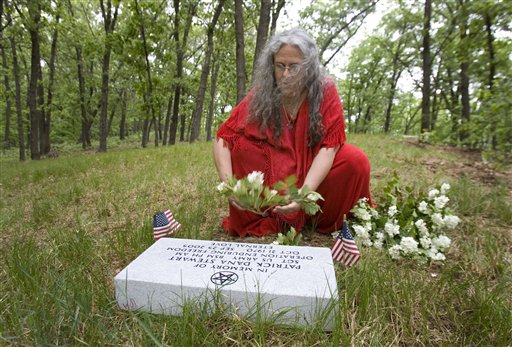Wicca is a minority Neo-Pagan religion of relatively recent origins, though many of the discrete practices have roots in multiple early civilizations.
The modern origin of the religion centers on Gerald Gardner, an English civil servant and occultist. The religion is organized in an anti-hierarchical fashion and has no official creed to which participants must subscribe, though some generalizations of belief may be present. Participants organize in loose local affiliations known as covens. Worship services tend to be focused on nature, and many covens organize in a rough matriarchal fashion.
4th Circuit ruled Wicca was a religion protected under First Amendment
Wiccans are often the subject of harassment, and while some of this behavior appears to occur out of ignorance or confusion over the teachings of the faith, some can only be described as coming from general intolerance. Participation in the Wiccan faith has been used in some cases to argue against parental rights in divorce cases and the granting of official “church” status, as well as the selective enforcement of zoning and building codes.
Some protections have been won. The Military Chaplains Handbook recognizes Wiccanism as a formal religion. In 1985 the City of New York formally recognized Wiccan clergy to perform marriage ceremonies, and the following year the Fourth Circuit Court of Appeals ruled in Dettmer v. Landon (1986), that Wicca was a religion and should be protected by the First Amendment.
Fear of violence has made many Wiccans practice anonymously
Also in 1985, then-senator Jesse Helms (R.-N.C.) introduced an amendment that would have removed the tax-exempt status of Wiccan organizations. Although the Helms Amendment passed the Senate, it was later dropped in conference committee due, in large part, to a concerted lobbying effort on behalf of Wiccans. Since that time, however, violence against either Wiccans or their property has not been completely eradicated. Fear of such violence forces many Wiccans to practice anonymously or to eschew any public discussions of their faith.
In April 2007, the U.S. Department of Veteran Affairs agreed to allow Wiccans to display their symbols on the gravesites of soldiers. The change in policy was brought about by a lawsuit filed over the denial of Wiccan families to display the pentacle (a five-pointed star inscribed by a circle) on the cemetery plaques.
This article was originally published in 2009. Thurman Hart is an Adjunct Instructor of Political Science at New Jersey City University.

